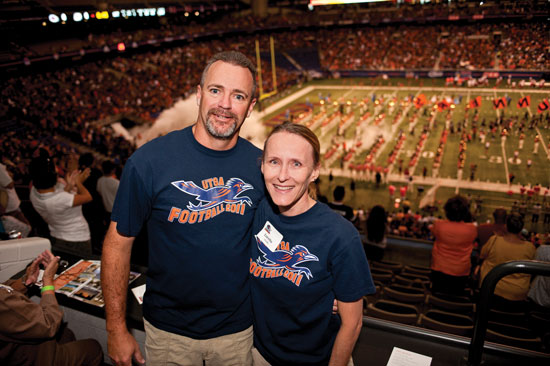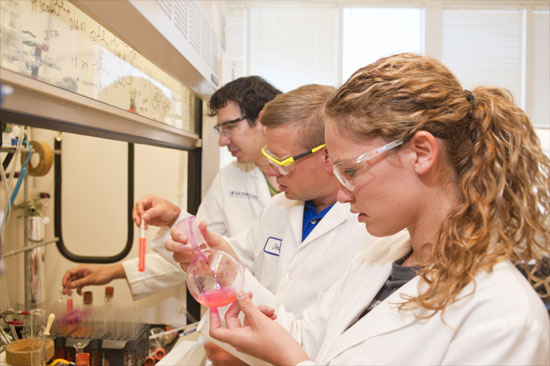Paying it Forward

Alumni Loretta and Jeff Clarke remain committed to ensuring students have greater access to higher education and providing an environment where students want to be.
They recently donated $1 million to establish two professorships, one in the College of Education and Human Development—named in honor of Loretta Clarke's mother, Henrietta Frances Zezula Lowak—and another in the College of Engineering, named after Jeff Clarke's mother, Mary Lou Clarke.
After Jeff Clarke earned a B.S. in electrical engineering, he embarked on a 25-year career at Dell, where he is now vice chairman and president of the company's Global Operations and End User Computing Solutions. Loretta Clarke earned her B.S. in physical education and then taught elementary school while earning her master's in early childhood education.
"We were both first-generation college graduates and the opportunities we have had are a result of going to college," she said.
"As long as there are great quality professors and there is a great curriculum and energy, then the kids can learn and that is what is going to make a difference," added Jeff Clarke.
In 2003, the couple gave $500,000, to create two professorships: The Robert E. Clarke Jr. Distinguished Professorship in Electrical Engineering, named after Jeff Clarke's father, and the Loretta J. Lowak Clarke Distinguished Professorship in Health and Kinesiology. At the time, it was the single largest alumni gift to the university.
"We feel that our education at UTSA was such a sound basis and foundation for all our successes both educationally and personally," Loretta Clarke said. "We just want the same for all the kids who probably struggle to be able to afford school."
Voelcker Legacy Continues

A more than $1 million grant to the College of Sciences will fund an initiative supporting drug discovery efforts aimed at curbing and eventually curing breast and prostate cancers, and neurodegenerative diseases such as Alzheimer's, Parkinson's and Huntington's diseases.
The three-year commitment from the Max and Minnie Tomerlin Voelcker Fund "will directly support a medicinal chemistry facility that we have initiated here on the UTSA campus," said Chemistry Professor Doug Frantz.
That initiative is called the Center for Innovation and Drug Discovery and is part of a larger global initiative.
The program will fund professors' research as well as internships for graduate and undergraduate students.
The center is an ongoing collaboration between the university and the University of Texas Health Science Center at San Antonio to build capacity core facilities that will support and accelerate drug discovery in a host of therapeutic areas, Frantz noted.
The Medicinal Chemistry Core Facility will be named after the Voelckers, who operated a large-scale commercial cattle raising and milking operation on a piece of San Antonio's North Side that is now the 311-acre Phil Hardberger Park.
"This particular gift will allow us to attract some phenomenal scientists into the core facility and provide us some long-term support for these phenomenal scientists to come in and get the center up and running," Frantz said.
Hearst Foundation's Gift
A digital media classroom, dubbed "the learning lab of the future," is taking form thanks to a $100,000 gift from the William Randolph Hearst Foundation.
The grant will help the university build a 21st century academic library and will feature a lab with a 120-seat classroom for students to work in small groups on individual laptops while also using shared monitors that allow for project collaboration.
The lab will be the first of its kind at UTSA and is expected to be operational by the end of the fall 2012 semester.
A separate $50,000 grant from the William Randolph Hearst Endowment will be used to fund a Peer Research Coaches program, whose goal is to have students get academic assistance from their peers.
The UTSA Libraries launched the Peer Coaches program in fall 2011 with a small group of handpicked students who built the skills and knowledge set needed to serve as resources for their fellow students.